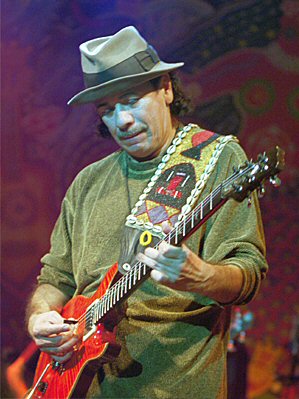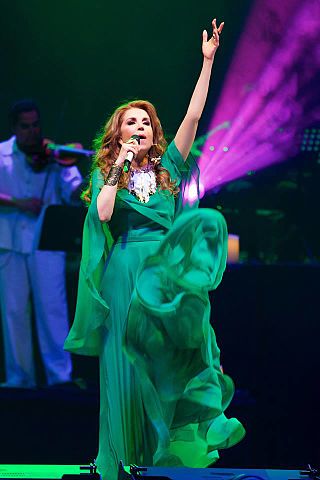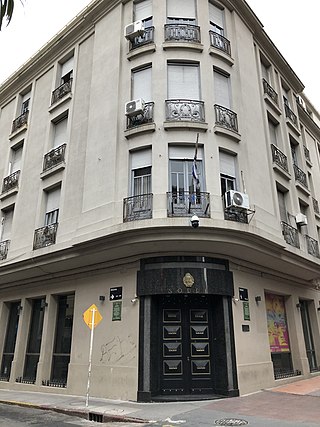
Mecano was a Spanish pop band formed in 1981 and active until 1992. Mecano became one of the most successful Spanish pop bands of all time. The band is still the best-selling Spanish band, with over 20 million records worldwide. They were considered by some to be avant-garde for their time and part of la Movida Madrileña countercultural movement. They had a brief comeback in 1998.

The music of Mexico is very diverse and features a wide range of musical genres and performance styles. It has been influenced by a variety of cultures, most notably deriving from the culture of the Europeans, Indigenous, and Africans. It also sometimes rarely contains influences from Asians and Arabs, as well as from other Hispanic and Latino cultures. Music was an expression of Mexican nationalism, beginning in the nineteenth century.

Luis Miguel Gallego Basteri is a Mexican singer and record producer. Born to parents of Spanish and Italian descent, he is often referred to as El Sol de Mexico, derived from the nickname his mother gave him as a child: "Mi sol". Luis Miguel has sung in multiple genres and styles, including pop songs, ballads, boleros, tangos, jazz, big band, and mariachi. Luis Miguel is also recognized as the only Latin singer of his generation to not cross over to the Anglo market during the "Latin Explosion" in the 1990s.

Joan Manuel Serrat Teresa is a Spanish musician, singer and composer. He is considered one of the most important figures of modern, popular music in both the Spanish and Catalan languages.

Mexican rock music, often referred to in Mexico as rock nacional, originated in the 1950s. Standards by The Beatles, Elvis Presley, The Everly Brothers, Nancy Sinatra, and Chuck Berry were soon covered by bands such as Los Apson, Los Teen Tops, Los Twisters, Los Hitters, Los Nómadas, Los Rockets, Los Rebeldes del Rock, Los Locos del Ritmo, Los Crazy Boys, and Javier Bátiz, which later led to original compositions, often in English. The group "Los Nómadas" was the first racially integrated band of the 1950s. Their lead guitarist, Bill Aken, wrote most of their original material, including the raucous Donde-Donde, and co-wrote the material for their Sounds Of The Barrio album, which is still being sold. Their 1954 recording of She's My Babe was the first top 40 R&B recording by a Latino band. In the southwestern United States, Spanish guitar rhythms and Mexican musical influences may have inspired some of the music of American musicians Ritchie Valens, Danny Flores, Sam the Sham, Roy Orbison, and later, Herb Alpert. Initially, the public exhibited only moderate interest in them, because the media attention was focused on La Ola Inglesa.

Paloma Cecilia San Basilio Martínez, known as Paloma San Basilio, is a Spanish singer, songwriter, producer and actress. She was awarded with a Latin Grammy Lifetime Achievement Award for contributions to Latin music. She has sold over 16 million records throughout her career, with styles that range from melodic songs to pop. She often appeared in various musicals such as the Spanish-language premiere production of Andrew Lloyd Webber's Evita in Madrid. Some other musical theater works include Man of La Mancha, My Fair Lady, Victor/Victoria, and Sunset Boulevard.

The 5th Annual Latin Grammy Awards were held on Wednesday, September 1, 2004, at the Shrine Auditorium in Los Angeles.
Mexican pop is a music genre produced in Mexico, particularly intended for teenagers and young adults.
Latin alternative, or "alterlatino", is a brand of Latin rock music produced by combining genres like alternative rock, lofi, chillout, metal, electronica, hip hop, new wave, pop rock, punk rock, reggae, and ska with traditional Ibero-American sounds, in Latin Europeans and Latin Americans countries.

The annual Premios MTV Latinoamérica 2007 took place on 18 October 2007 in Mexico City at the Palacio de los Deportes for the second time in a row.

Grupera is a genre of regional Mexican music. It reached the height of its popularity in the 1990s, especially in rural areas. The music has roots in the rock groups of the 1960s, but today generally consists of four or more musicians using electric guitars, keyboards and drums. The music increased in popularity in the 1980s and became commercially viable, and is now recognized in some Latin music awards ceremonies such as Lo Nuestro and The Latin Grammy Awards. Grupero artists typically perform rancheras, corridos, cumbias, charangas, ballads, boleros and chilenas/huapangos.
Noemí Carrión Pérez, is a Spanish singer, dancer, and actress, known also as Naymi and Noemí. Her work encompasses studio recording, songwriting, live performance, and television presenting.
Telehit Awards is a Mexican award that recognizes the greatest music events in Mexico, and broadcast by Telehit channel.

Ana Margarita Díaz Aceves, better known as Ana Diaz, is a Mexican composer and singer of contemporary Mexican songs. In her musical style, she mixes sounds like jazz, blues, bossa nova, ballad, pop, Latin music, cumbia and Mexican rhythms, which essentially makes her genre world music.

Guadalupe Pineda Aguilar is a Mexican singer considered one of Mexico's grassroots musical icons. She is a recipient of the Latin Grammy Lifetime Achievement Award and a multi-Latin Grammy nominee, she has released more than 30 albums during her career covering various styles of music with sales over 14 million copies worldwide. In 1984, she recorded her breakthrough hit "Yolanda", also known as "Te Amo", composed by Pablo Milanes, selling more than 1.5 million copies. She primarily sings in Spanish, but has also sung in French, Italian, English, and Hebrew. She has been called the “Queen of Bolero”, but has also sung ballads, mariachi, tango, ranchera, and opera. Pineda has performed all over México, Latin America, and Spain, as well as in Europe and North America.

The Official Service of Diffusion, Representations and Entertainment is a national cultural organization in Uruguay, controlled by the Ministry of Education and Culture.

Eugenia León is a Mexican singer. In 1985, she won first place at the prestigious OTI Festival in Seville, Spain with the theme "El Fandango Aquí" by Marcial Alejandro. A winner of the Latin Grammy Lifetime Achievement Award, she has had a career spanning more than 35 years and 26 recorded albums, of which several million copies have been sold. She has performed in some of the most important venues in Mexico, such as the Palacio de Bellas Artes, the Auditorio Nacional, the Sala Nezahualcóyotl, the Teatro de la Ciudad, and the Cervantino Festival.












